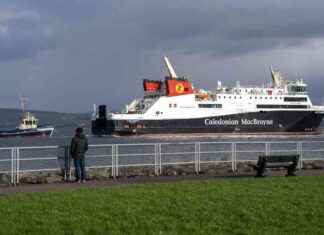LNER Train Driver Strikes Resolved Through Negotiations
A series of potential disruptions to train services on LNER have been averted as a result of successful negotiations between the train drivers’ union Aslef and the company. The planned weekend strikes, which were set to take place over the next few months, have been called off, much to the relief of passengers who rely on the services provided by LNER.
The decision to call off the strikes comes after Aslef claimed there had been a breakdown in industrial relations with the company, leading to the threat of more than 20 days of industrial action. The strikes were scheduled to occur on weekends, with Saturdays from August 31 to November 9, and Sundays from September 2 to November 10 earmarked for disruption.
The dispute between Aslef and LNER centered around alleged breaches of agreements on work practices, with the union raising concerns about the treatment of drivers and the reliance on excessive overtime to maintain operations. However, following constructive discussions between the two parties, a resolution has been reached that satisfies both sides.
Mick Whelan, the general secretary of Aslef, expressed satisfaction with the outcome of the negotiations, highlighting the importance of communication and collaboration in resolving workplace issues. He emphasized the union’s commitment to advocating for better working conditions for rail workers and improved services for passengers.
Impact on Services and Passengers
The potential strikes by LNER train drivers had the potential to cause significant disruptions to services, affecting thousands of passengers who rely on the trains for their daily commute or travel plans. With weekends being a popular time for leisure travel, the planned industrial action could have had far-reaching consequences for both individuals and businesses.
The decision to call off the strikes will come as a relief to passengers who can now travel without the fear of cancellations or delays. It also demonstrates the importance of effective communication and negotiation in resolving disputes within the transport industry, ensuring that services can continue to operate smoothly and efficiently.
Lessons Learned and Moving Forward
The resolution of the strike threat on LNER serves as a valuable lesson in the power of dialogue and compromise in resolving workplace issues. By engaging in constructive discussions and finding common ground, both the union and the company were able to reach a mutually beneficial agreement that averted potential disruptions and maintained the integrity of the services provided.
Moving forward, it is essential for all parties involved in the railway industry to continue working together to address any concerns or grievances in a proactive and collaborative manner. By fostering a culture of open communication and respect, future disputes can be resolved more effectively, ensuring the smooth operation of services and the well-being of all employees.
In conclusion, the successful resolution of the planned strikes on LNER is a testament to the importance of negotiation and cooperation in the transportation sector. By putting the needs of passengers and employees first, the union and the company were able to find common ground and reach a positive outcome that benefits all stakeholders. This serves as a reminder of the value of communication and compromise in overcoming challenges and maintaining the integrity of essential services.
































